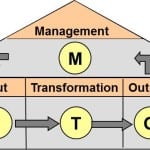Systematic corruption risk analysis with the MITO Methods Tool
Anti-corruption management as an integrated strategy within already established management systems such as quality management, environmental management or occupational health and safety management is becoming increasingly important for companies and public administration, as corruption damages reputation and reputation. In particular, all areas of work in which information is available or decisions are made that – immediately recognizable – represent a material or immaterial advantage for third parties (e.g. when awarding contracts) or are of importance are to be regarded as at risk of corruption. In the public administration and in some companies, extensive regulations have been put into force to prevent and repressive anti-corruption. Accordingly, the organisations and institutions must identify their jobs/posts at risk of corruption and subject them to a hazard and risk analysis.
The participants will be shown how the MITO methods tool can be used to quickly and easily carry out a detailed corruption risk analysis together with a risk query according to workplace, activity, process and organizational aspects related to the workplace, activity, process and organizational structure. The analysis results and the need for action are graphically displayed in digitized form. They are the basis for the development of a hazard atlas with a presentation of the hazard areas related to the task field. A digital catalogue of anti-corruption targets and measures supports users in the targeted derivation of measures for risk and risk reduction.
Here you will find a detailed description of the procedure. In an analogous way, the MITO tool can also be used for reducing bureaucracy, occupational safety, health or digitization analyses.
Online introductory seminar (2 hours):
Lecture 1 (1 hour):
- Basics of anti-corruption analysis
- The importance of the fight against corruption for authorities and institutions
- Anti-corruption standards and guidelines
- Corruption management system task definition and delimitation
- The MITO method tool for cooperation risk analysis
- The 4 phases of the hazard analysis model „analysis, diagnosis, therapy, evaluation“
Lecture 2 (1 hour):
- Procedure for MITO tool-supported risk analysis and determination of jobs / positions at risk of corruption
- Procedure for the activity-related risk inquiry (risk query) and review with regard to a particular risk of corruption
- Procedure for the task content-related risk analysis and determination of the degree of danger
- Procedure for identifying risk drivers and creating a risk atlas, as well as defining measures to prevent corruption
- Procedure for identifying risk drivers and creating a risk atlas, as well as defining measures to prevent corruptionSpecification of a process-organization-related reference corruption risk portfolio checklist
Online advanced seminar (4 hours)
Online implementation of a corruption analysis simulation game. Lecture 1 (approx. 1 hour):
- Systematic approach with the MITO method tool for:
- Corruption analysis
- Corruption diagnosis
- Corruption therapy
- Corruption evaluation
Lecture 2 (approx. 3 hours):
- Initiation of the simulation game
- Simulation game round 1: Risk assessment to determine an increased risk of corruption by means of activity-related analysis
- Simulation game round 2: Risk analysis to determine the actual degree of danger by means of environment-related, process-oriented and structure-oriented analysis
- Simulation game round 3: Risk minimization with evaluation of the overall risk, determination of risk drivers and hazard atlas
Dates:
Online introductory seminar (2h) on 23.02.2023 from 14:00 to 16:00
Online advanced seminar (4h) on 02.03.2023 from 13:00 to 17:00
Costs : Introduction 100,-€/deepening 200,-€ per participant plus 19% VAT.
Registration: via the registration form below!
Conditions of participation
If a company registers several participants, the participation fee for each additional participant is reduced by 10% of the original amount.
The participation fee includes the event documents as well as a certificate of participation. After receipt of the invoice (by e-mail in PDF format), please transfer the invoice amount stating the invoice number to the bank details specified in the invoice. After receipt of the invoice amount, you will receive the certificate of participation (PDF format) and the course documents (PDF format) of the lecturer.
Cancellation:
For a registration cancellation, which is received later than 1 week before the event date, 50% of the participation fee will be charged.In case of non-participation without cancellation, the participation fee must be paid in full.
Venue:
You will receive the Internet address (URL) and personal participant access data by e-mail with the confirmation of participation.

